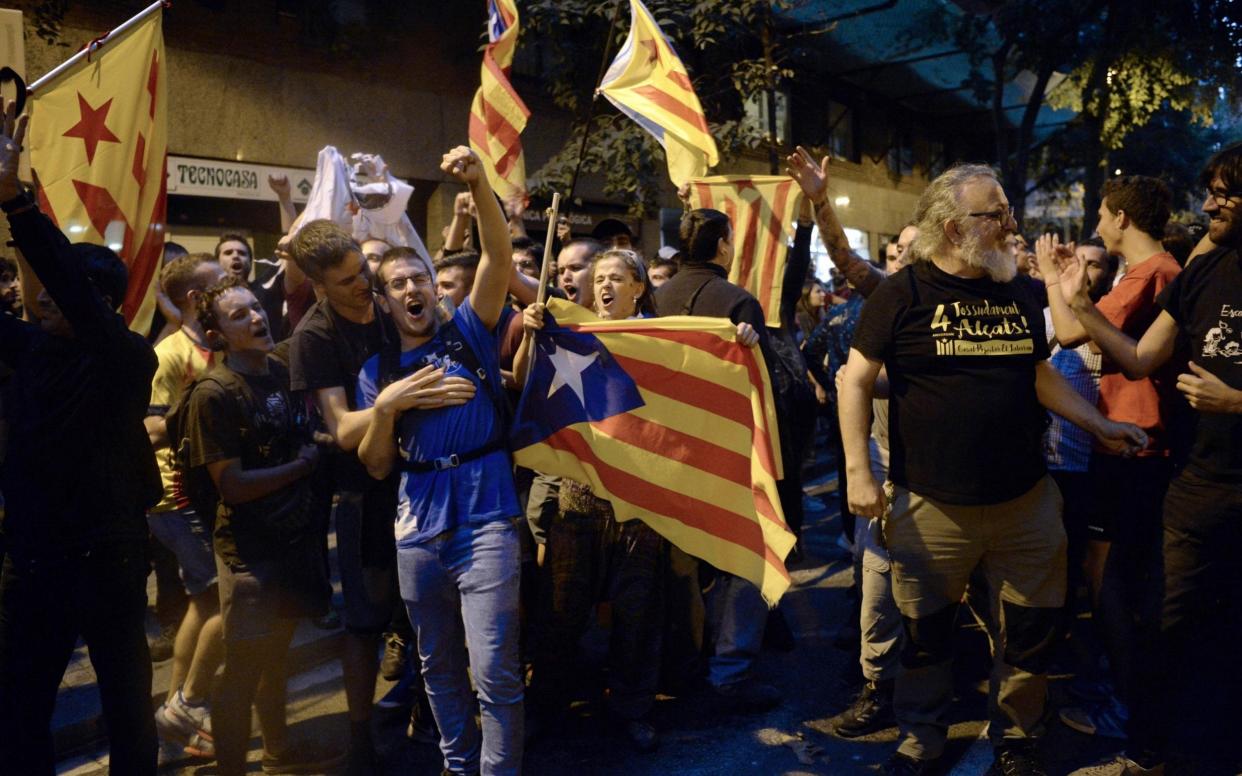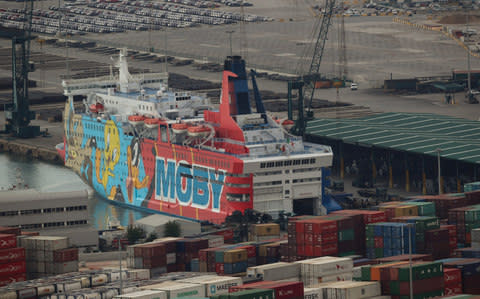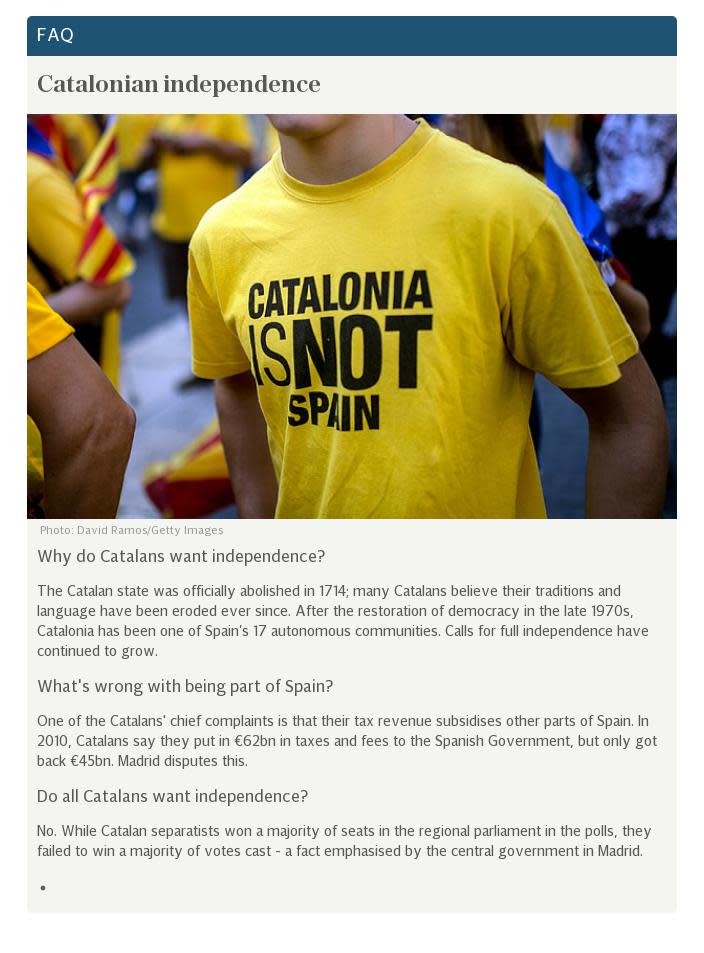Boats of Spanish military police blocked by Catalan ports as unrest grows

Spain’s deployment of boatloads of military police to Catalonia to prevent its independence referendum hit obstacles yesterday as dockers in two ports announced a boycott and a third denied them mooring.
More than 4000 members of Spain’s Guardia Civil are being dispatched to Catalonia amid concerns over divided loyalties in the autonomous community’s own police force, the Mossos d’ Esquadra. They are to be accommodated on four cruise ships - two in the port of Barcelona, one in Tarragona and another in Palamos.
But, as thousands took to the streets in Barcelona for a second day of protest over the detention of Catalan officials, local dock workers joined the backlash.

The Assembly of Stevedores of the Port of Barcelona announced that workers would not provide any services to boats carrying security forces, a decision it said was taken “in defence of civil rights”. Dock workers in Tarragona quickly followed suit.
The Catalan government meanwhile denied permission to dock in Palamos - which, unlike Barcelona and Tarragona, falls under regional rather than national control. While the official reason was that the port’s services were already “committed”, the head of the department responsible, Josep Rull i Andreu, tweeted: “In effect, we have not let them dock.”
The moves to thwart the deployment comes amid seething anger in Catalonia over Wednesday’s arrests of 14 people, most of them high ranking Catalan officials, during preparations for a referendum that has been declared illegal by Spain’s constitutional court.

Dramatic scenes unfolded across Barcelona and other Catalan towns as the Guardia Civil mounted 41 raids targeting government and presidential departments, as well as warehouses containing election material. Agents in riot gear pushed back crowds of incensed protesters, many shouting “fascists!” and “out with the forces of occupation!”.
But the role of the Catalan police was called into question after a tense night of demonstrations outside the department of economy, where 40,000 gathered as the Guardia Civil searched inside. A contingent of agents was blocked from leaving the building by the rowdy protesters, until the judge who ordered the raids reportedly called the head of the Mossos at midnight to tell him to “get them out of there”.
While the Spanish interior minister, Juan Ignacio Zoido, said only that he hoped “coordination will improve”, local media cited sources from the operation as saying the Mossos had dragged their feet on setting up a security cordon for the agents to depart.

Guardia Civil unions denounced the “harassment” of officers in Catalonia, the Unified Association of Guardia Civil tweeting photos of police vehicles destroyed by the protesters with the comment: “How much more do we have to put up with?”
The head of the Mossos, Major Josep Lluis Trapero, has a delicate line to tread. Ordered to enforce the ban on the referendum and related activities, the Catalan force finds itself at odds with the autonomous government as well as much of the populace.
The sensitivity of the situation was reflected in an order from Major Trapero on Wednesday that the his agents should be “especially careful with the use of force”.
While Catalans are split on the issue of independence, support for a vote is high, and few are happy with Spanish police arresting Catalan leaders, a sight which to many conjures memories of the Franco dictatorship.
on Thursday, some 10,000 protesters descended on the High Court of Justice in Barcelona to demand the detainees be released without charge and chanting “We will vote!”.
The operation was also denounced by 91 Left-wing members of the Spanish Congress, who said fundamental rights were being abused in Catalonia.
Tensions will only be further fuelled by reports yesterday that some of those detained are likely to face charges of sedition, which carries a lengthy prison sentence.

 Yahoo News
Yahoo News 
